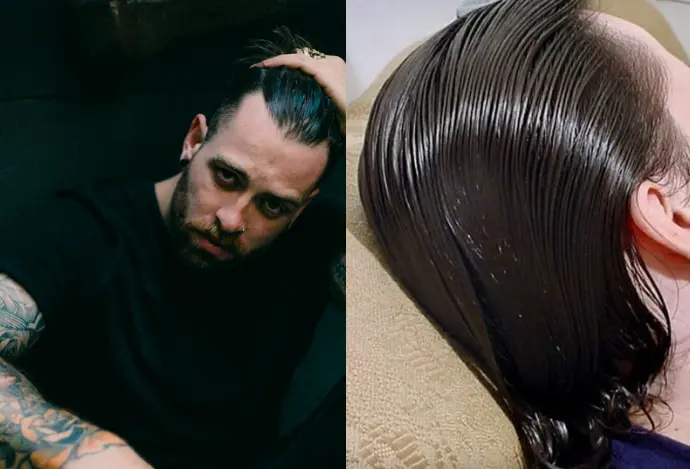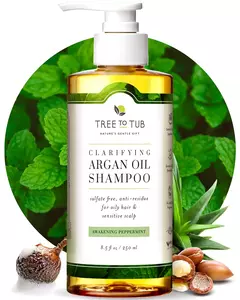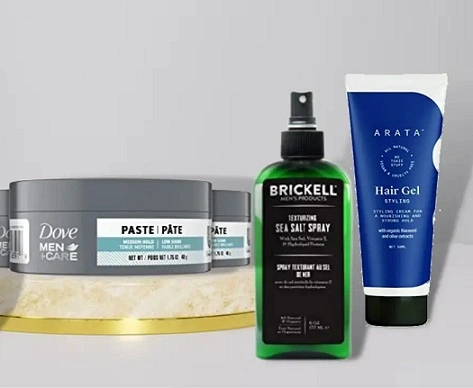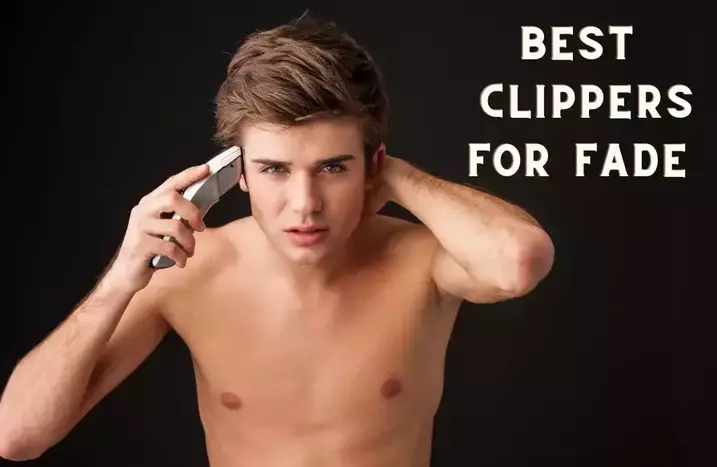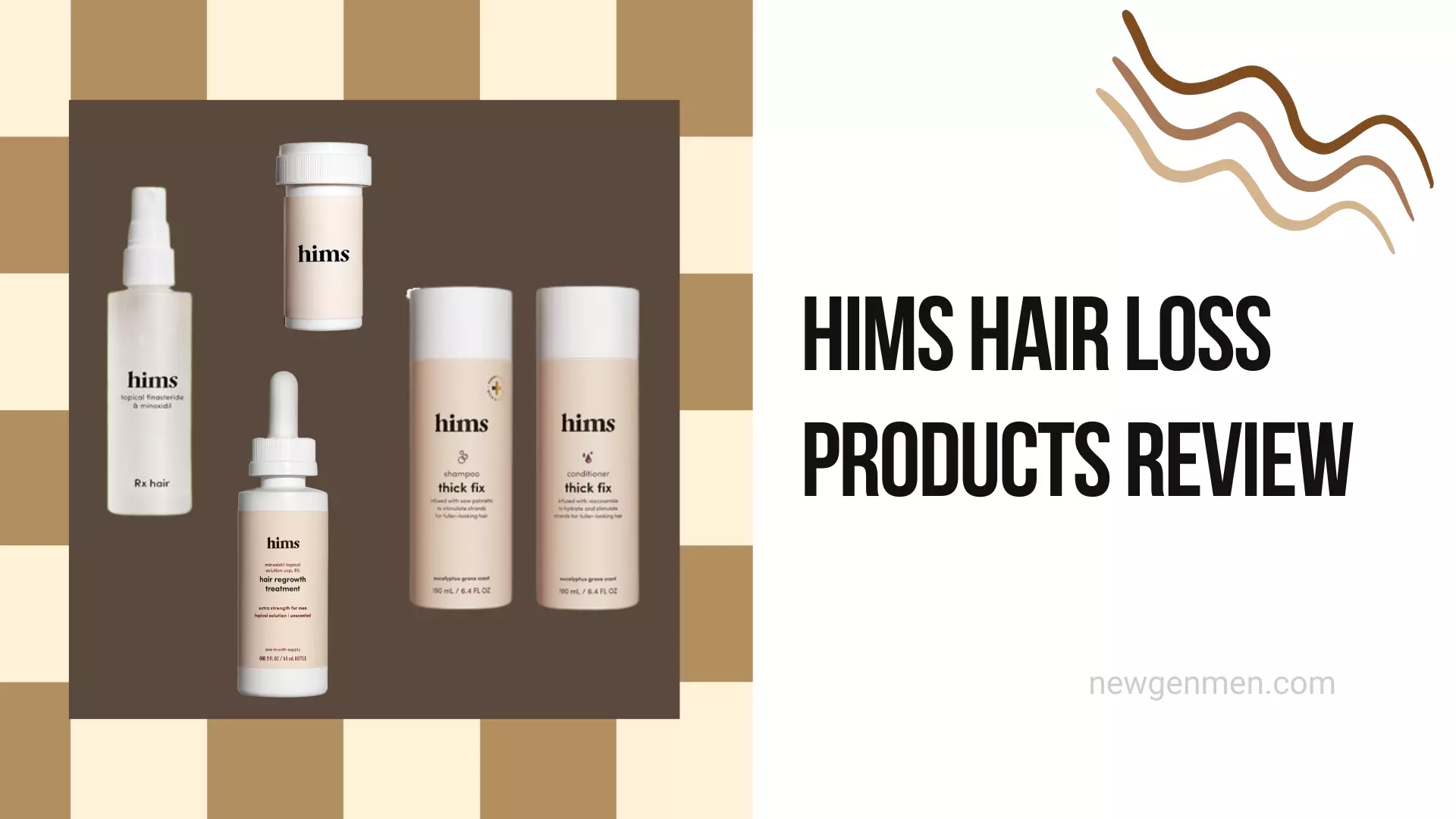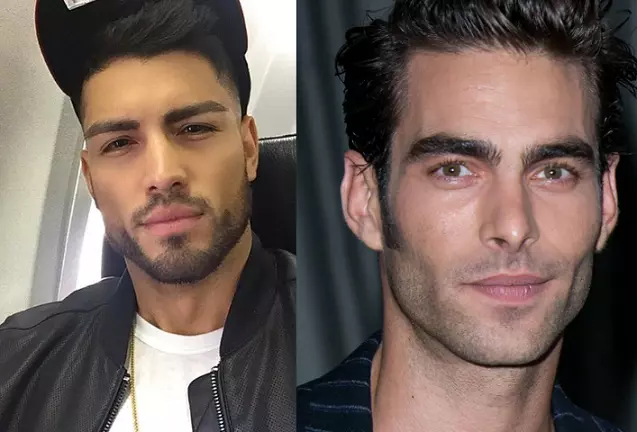How to Fix Greasy Hair Men
Greasy hair on men is not a good look. It’s the kind of thing that can make you feel self-conscious and uncomfortable when getting up close and intimate. When you see someone with greasy hair your first thought is they don’t get around to showering often, but that’s often not the case.
Unfortunately, showering and having good hygiene can still lead to oily hair in men. If you’re sick of feeling like you’ve got a permanent grease stain on your head, then read on. We’ll give you some tips on how to get rid of greasy hair for good.
Why is My Hair So Oily?
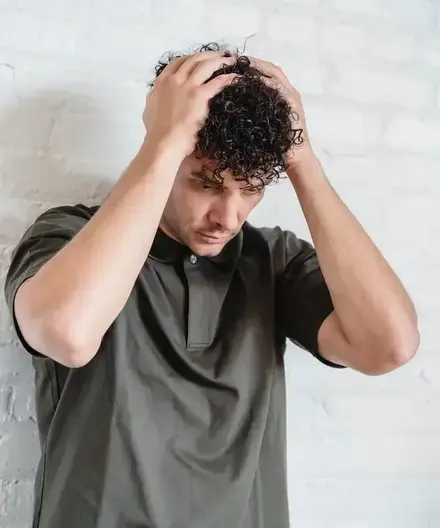
There are a number of reasons why your hair might be looking extra greasy these days. Here are some of the most common culprits:
- Not Shampooing Enough
- Over-Washing Your Hair
- Using the Wrong Products
- Hormonal Imbalance
- Bad Diet
- Overactive Sebaceous Glands
- Undiagnosed Allergy
- Genetics
- Hot / Humid Weather Conditions
Related: hims Hair Loss Review: Worth The Hype?
How To Fix Greasy Hair Men
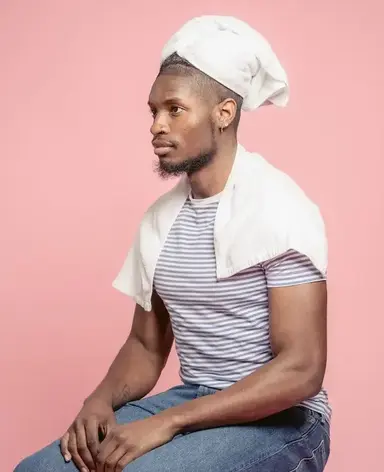
Shower and Shampoo More Often
Not shampooing often will lead to oily hair that will also make your scalp smell bad. If you have an active lifestyle and sweat at least once a day, you should be shampooing your hair once a day minimum. If you have more of a sedentary lifestyle and don’t get as dirty, you should aim for every other day when it comes to shampooing your hair.
Another helpful tip while showering– use cold water. Hot water opens up the cuticle, which allows all those wonderful oils and nutrients to escape, making your hair dry and having to produce more oil. Cold water does just the opposite by sealing off the cuticle and locking in moisture, leaving your hair shiny and healthy, without the grease.
Don’t Over-Wash Your Hair
On the other hand, just like not washing enough can lead to greasy hair– washing your hair too much can have the same effect. This is because over-washing strips and dries your scalp and strands of their natural oils, leading your scalp to produce even more oil to make up for it.
If you are someone who enjoys multiple showers a day, opt to skip shampoo during the extra showers. If you’ve already shampooed earlier, you can just rinse your hair with water to not strip and dry out your hair. A shower cap can also be helpful if you’re wanting to just rinse your body without wetting the hair.
Using the Wrong Products
If your hair is on the oily side to begin with, steer clear of products that contain added oils or silicones. These ingredients will only weigh down your strands and make them look greasier than they actually are.
If you’re struggling with greasy hair, avoid shampoos with heavy fragrances or lotions. These ingredients can actually make your hair oilier by clogging up your pores. Instead, look for clarifying shampoos that are specifically designed for oily hair types. These will usually contain natural ingredients like tea tree oil or lemon juice, which help to control excess oil production.
Try Dry Shampoo
Dry shampoo is a great product for those who suffer from greasy hair. It’s a shampoo that comes in a powder substance, perfect for soaking up any dirt and oil, leaving your hair feeling and smelling clean. Perfect for those days where you skip washing your hair all together.
Lifestyle Changes for Hormonal Imbalance

One of the symptoms of hormonal imbalance is an oily scalp. Natural oils are important in maintaining a healthy scalp, but when things are out of balance your sebaceous glands may produce too much sebum (the natural oil that keeps your skin and hair healthy).
Maintaining a healthy weight, exercising, and eating a nutritious diet can help correct hormonal imbalance. Consuming a diet high in fats and oils may contribute to oily hair. Stress and other negative factors like not getting enough sleep can also make your hormones out of wack so be sure to have a healthy sleep and exercise routine.
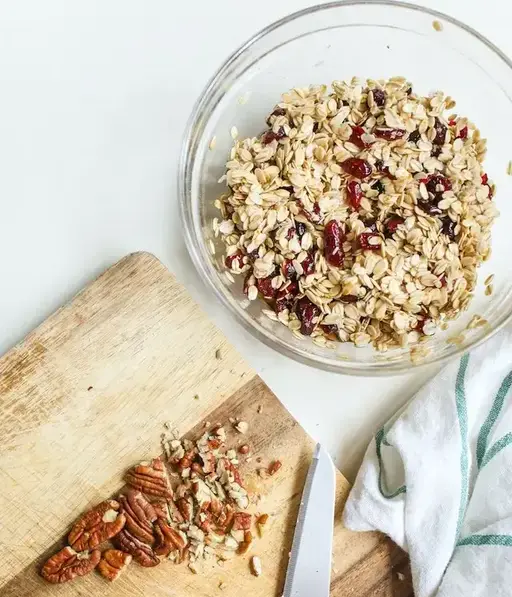
There are some foods and dietary changes you can make that can help improve the health of your hair and reduce oiliness.
- Foods rich in Omega-3 fatty acids: Foods like salmon, walnuts, flaxseeds, and chia seeds are all rich in Omega-3 fatty acids. These healthy fats help nourish hair follicles and reduce inflammation in the scalp, which can help reduce oiliness.
- Leafy greens: Leafy greens like spinach and kale are rich in vitamins and minerals that are important for healthy hair, including Vitamin A, Vitamin C, and Iron.
- Whole grains: Whole grains like brown rice, quinoa, and oats are rich in B vitamins, which help promote healthy hair growth and reduce oiliness.
- Lean proteins: Foods like chicken, turkey, and eggs are all rich in protein, which is important for healthy hair growth. Protein helps strengthen hair follicles and reduce breakage, which can lead to less oiliness.
- Citrus fruits: Citrus fruits like oranges, lemons, and grapefruits are rich in Vitamin C, which is important for collagen production in the scalp. Collagen helps keep hair follicles strong and healthy, reducing oiliness.
Change Your Pillowcase Often
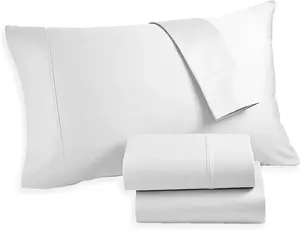
Changing your pillowcase regularly can also help with greasy hair. When you sleep, your hair comes into contact with your pillowcase, and the natural oils from your hair can transfer onto the fabric. If you don’t change your pillowcase regularly, these oils can build up and transfer back onto your hair, making it look greasier. These oils can then transfer back to your face as well, causing clogged pores and breakouts.
It’s recommended to change your pillowcase at least once a week, or more frequently if you have particularly oily hair. Additionally, you can also try using a silk or satin pillowcase, as these materials are less likely to absorb the oils from your hair and can help reduce frizz and breakage.
Avoid Touching Your Hair

Another simple way to decrease the amount oil and grease in your hair is to stop touching it. It’s tempting to run our fingers through our hair when we’re bored or trying to fix greasy hair, but doing so can actually transfer natural oils from our hands onto our strands, making them look dirtier than they actually are. Keep your hands off your hair and try to keep your hair from touching your face as much as possible.
Read More:

